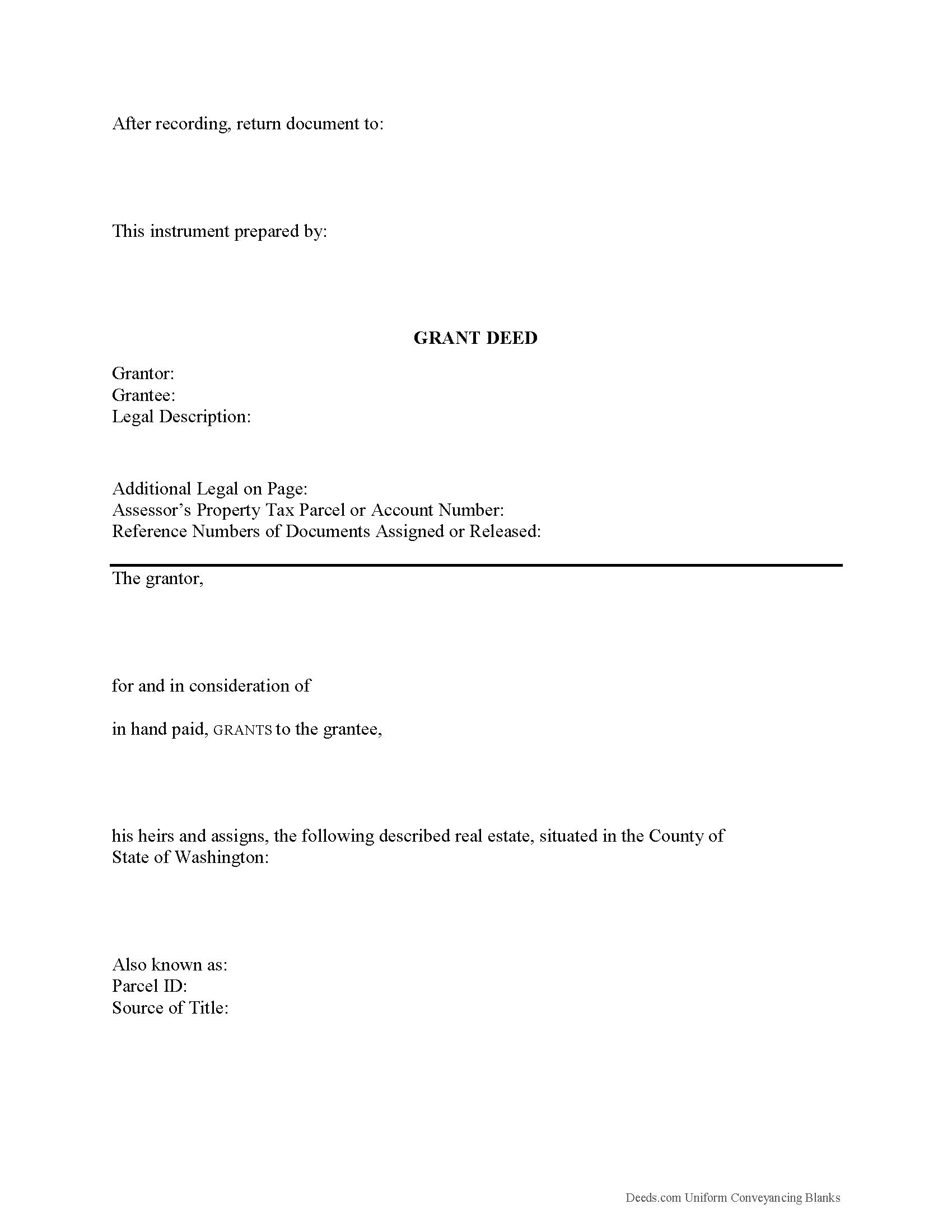Download Washington Grant Deed Legal Forms

Washington Grant Deed Overview

In Washington State, title to real property can be transferred from one party to another using a grant deed. Use a grant deed to transfer title with assurances that the grantor has not previously conveyed the estate and that he or she has not encumbered the property, except for any restrictions noted in the deed. The word "grant" typically signifies a grant deed, but it is not a statutory form in Washington.
Grant deeds offer the buyers (grantees) more protection than quitclaim deeds, but less than warranty deeds. A grant deed differs from a quitclaim deed in that the latter offers no warranty of title, and only conveys an interest that the grantor may have in the subject estate. Grant deeds, on the other hand, contain the implicit assurance that the grantor has actual rights to the title, as well as the authority to transfer those rights to someone else.
In addition to meeting all state and local standards for recorded documents, lawful grant deeds include the grantor's full name, mailing address, and marital status, the consideration given for the transfer, and the grantee's full name, mailing address, marital status, and vesting. Vesting describes how the grantee holds title to the property. Generally, real property is titled in either sole ownership or in co-ownership. For Washington residential property, the primary methods for co-owners holding title are tenancy in common, joint tenancy, and community property. A conveyance of real estate to two or more persons creates a tenancy in common, unless a joint tenancy is declared (RCW 64-28-010). A conveyance to a married couple is presumed to be community property, unless declared otherwise (RCW 64-28-020, 64-28-040).
As with any conveyance of realty, a grant deed requires a complete legal description of the parcel. In Washington, an abbreviated legal description of the property must appear on the first page of the instrument. If the full legal description appears elsewhere in the deed, its located should be indicated on the first page (RCW 65-04-045).
Recite the prior deed reference to maintain a clear chain of title, and detail any restrictions associated with the property. The completed deed must be signed by the grantor (and his or her spouse, if applicable) and notarized. Record the original completed deed, along with any additional materials, at the recorder/auditor's office of the county where the property is located. Contact the same office to verify recording fees and accepted forms of payment.
In Washington, real estate excise tax is levied based on the amount of consideration. If the transfer is exempt from the excise tax, denote the reason for the exemption on the face of the deed. Find a list of exempt transfers at RCW 458-61A-200 through 217.
This article is provided for informational purposes only and is not a substitute for the advice of an attorney. Contact an attorney with any questions related to the transfer of real property in Washington.
(Washington Grant Deed Package includes form, guidelines, and completed example)